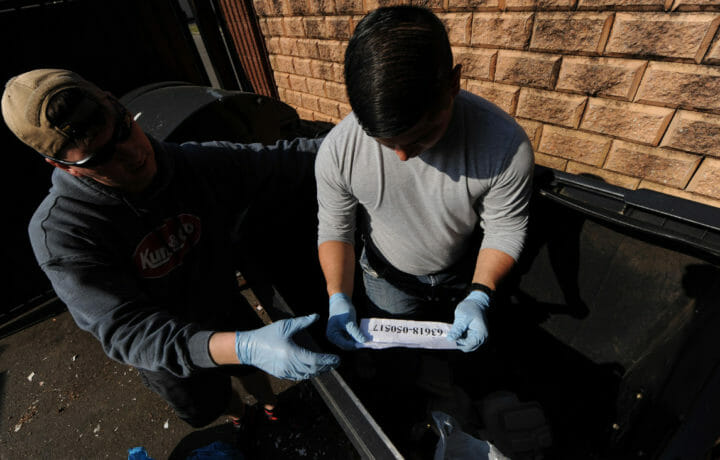On October 28, 2005, Chi Mak, a lead engineer on a defense project dealing with propulsion of U.S. Navy warships was arrested for espionage on behalf of China. Mak, who worked for defense contractor L-3 Power Paragon, was involved with the development of Quiet Electric Drive technology.
On October 28, 2005, Chi Mak and his spouse, Rebecca Chiu were arrested, they were scheduled to fly to the PRC via Hong Kong on that day, carrying with them the encrypted CD-ROM containing the naval secrets.
Chi Mak
Chi Mak moved to the U.S. in 1978 and was naturalized as a U.S. citizen on June 21, 1985. What makes Mak’s case noteworthy was that Mak is believed to have been trained and dispatched to the United States by Chinese intelligence for the purpose of targeting U.S. defense secrets. He also planned, according to court records, to retire in March 2006 and was looking at real estate in Hong Kong. Surprisingly, given his having been dispatched to the U.S., his OPSEC was weak. An FBI trash cover revealed he tossed information, such as Chinese language tasking, of Chi in his personal trash (albeit torn up into tiny pieces).
China’s shopping list
The Chinese were tasking Chi Mak, according to court documents, to seek information on a number of military technologies. Based on the list of those technologies, it is clear they viewed Mak as one-stop-shopping, when it came to naval secrets surrounding electronics and propulsion systems. Their shopping list included: “space-based electromagnetic intercept system, space-launched magnetic levitational platform, electromagnetic artillery system, submarine torpedoes, electromagnetic launch systems, aircraft carriers electronic systems.” Additionally, Chi Mak was tasked with developing information on “water jet propulsion; ship submarine propulsion technology; non-air reliant; power system configuration technology, weapons standardization, modularization, early warning technologies, command and control systems technologies, defense against nuclear attack technology; permanent electromagnetic motor; shipboard power systems; shipboard internal/external communications systems; high frequency, self-linking, satellite communications; and submarine communications.”
Chi Mak was efficient. He would take the information from his work place to his home, and then copy the information on CD-ROM, and then deliver them to his brother, Tai. Tai, working with his son, Billy (a senior at UCLA) would encrypt the files for his uncle and then hide the files on a CD-ROM music disc.
The chilling aspect of this particular case of espionage as noted by Judge Carney on March 24, 2008 when sentencing Chi Mak to prison, “We will never know the full extent of the damage that Mr. Mak has done to our national security. A high-end…sentence will provide a strong deterrent to the PRC not to send its agents here to steal American military secrets.”
Chi Mak was sentenced to 24 years in prison and fined $50,000. Now 81, he remains incarcerated in FCI Lompoc, scheduled to be released in 2026.
His co-conspirators pleaded guilty. His brother Tai Wang Mak was a lawful permanent resident of the U.S. He was sentenced to 10 years prison, served six, and he was released in July 2014. Chi Mak’s spouse, Rebecca Chiu, a naturalized U.S. citizen, was given three year’s probation. Also involved were two others, his sister-in-law Fuk Li, a lawful permanent resident and his nephew Billy Yui Mak, who were sentenced to time served and then deported back to China.
Dongfan “Greg” Chung
A positive result of the Chi Mak investigation led FBI investigators to another Chinese spy, who had been operating in the United States for approximately 30 years, and that was Dongfan “Greg” Chung, who had worked with Rockwell International (then Boeing) since 1973 and was arrested in July 2009 for economic espionage, having shared NASA information concerning the U.S. space shuttle and the Delta IV rocket with China.
While the above occurred years ago, hostile foreign intelligence interest remains. Insider threat programs exist to keep cases like Chi Mak and Greg Chung from going undetected. The sensitivity of U.S. naval technologies remains, as evidenced by the recent arrest of nuclear engineer Jonathan Toebee in early-October 2021.




